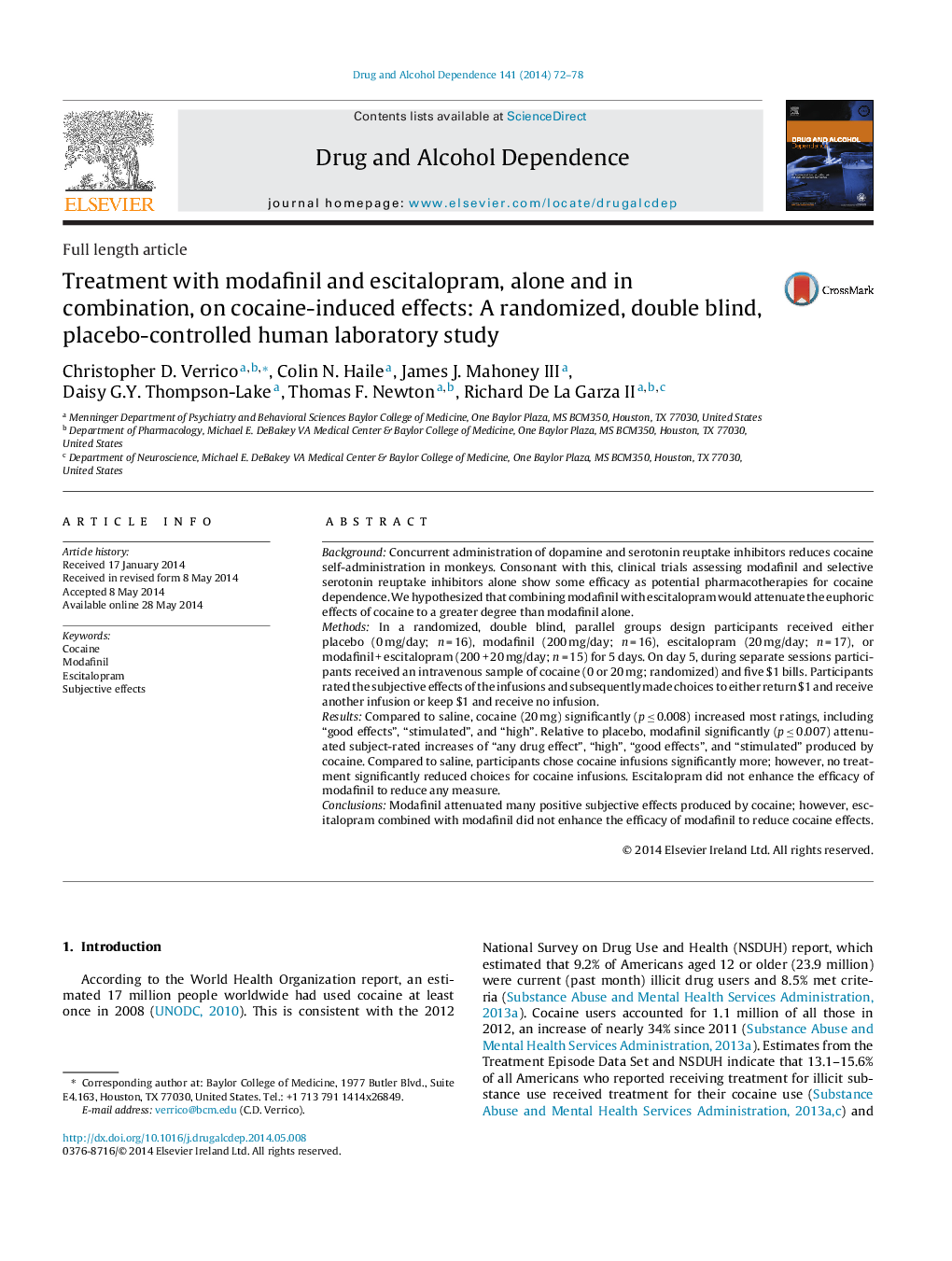| Article ID | Journal | Published Year | Pages | File Type |
|---|---|---|---|---|
| 1069844 | Drug and Alcohol Dependence | 2014 | 7 Pages |
BackgroundConcurrent administration of dopamine and serotonin reuptake inhibitors reduces cocaine self-administration in monkeys. Consonant with this, clinical trials assessing modafinil and selective serotonin reuptake inhibitors alone show some efficacy as potential pharmacotherapies for cocaine dependence. We hypothesized that combining modafinil with escitalopram would attenuate the euphoric effects of cocaine to a greater degree than modafinil alone.MethodsIn a randomized, double blind, parallel groups design participants received either placebo (0 mg/day; n = 16), modafinil (200 mg/day; n = 16), escitalopram (20 mg/day; n = 17), or modafinil + escitalopram (200 + 20 mg/day; n = 15) for 5 days. On day 5, during separate sessions participants received an intravenous sample of cocaine (0 or 20 mg; randomized) and five $1 bills. Participants rated the subjective effects of the infusions and subsequently made choices to either return $1 and receive another infusion or keep $1 and receive no infusion.ResultsCompared to saline, cocaine (20 mg) significantly (p ≤ 0.008) increased most ratings, including “good effects”, “stimulated”, and “high”. Relative to placebo, modafinil significantly (p ≤ 0.007) attenuated subject-rated increases of “any drug effect”, “high”, “good effects”, and “stimulated” produced by cocaine. Compared to saline, participants chose cocaine infusions significantly more; however, no treatment significantly reduced choices for cocaine infusions. Escitalopram did not enhance the efficacy of modafinil to reduce any measure.ConclusionsModafinil attenuated many positive subjective effects produced by cocaine; however, escitalopram combined with modafinil did not enhance the efficacy of modafinil to reduce cocaine effects.
